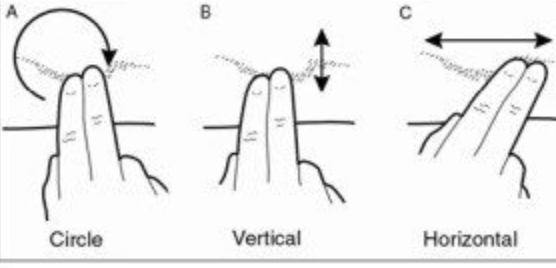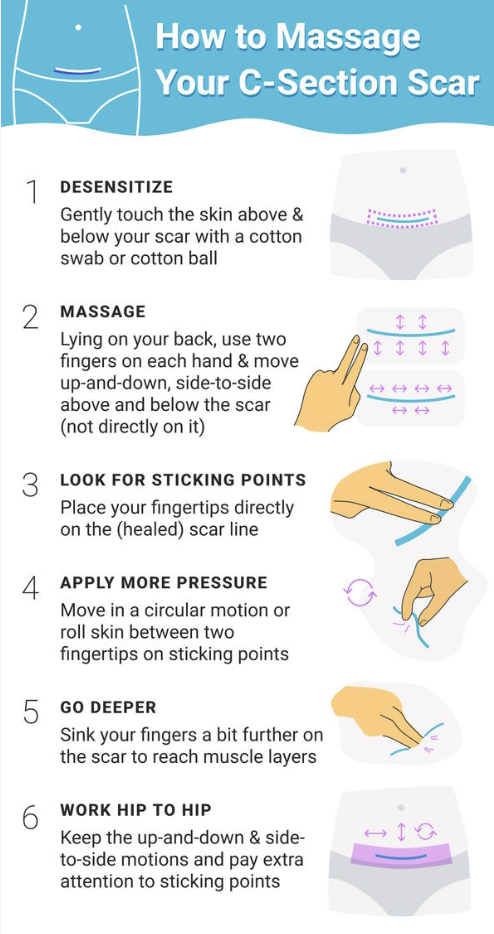Back
Why is scar mobilization important for C-section, perineal, post-op and more?
By Shannon Strauch, PTA, STMT-1 on 10/11/2023

Why is scar mobilization important for C-section, perineal, post-op and more?
By Shannon Strauch, PTA, STMT-1What is scar tissue and how is it formed?
After an injury or surgery, the body lays down collagen to repair the wound. However, since this needs to be done quickly, instead of the fibers being laid down nice, flat and even, the fibers end up in a criss-crossed manner forming scar tissue. Because of this criss-cross, scar tissue tends to be thicker, stiffer and can restrict the surrounding tissues such as skin, fascia, and muscles.
C-section, perineal scars and more
Patients commonly seen by pelvic floor physical therapists include women who are post-Caesarean, post-episiotomy, or perineal tearing after birth.
During C-sections, doctors need to cut through the layers of the skin, subcutaneous fat, fascia, muscles, parietal peritoneum and uterus. That is a lot of layers of tissue that need to close up and heal again!
A perineal tear can happen naturally through the healing process with different degrees of severity.
A first degree tear affects only the perineal skin.
A second degree tear affects the perineal skin and perineal muscles.
A third degree tear affects the perineal skin, perineal muscles, and external anal sphincter.
And finally, a fourth degree tear affects the perineal skin, perineal muscles, external anal sphincter, and internal anal canal.
During an episiotomy, the edges are cut so they are smoother, but damage is still done to the perineal tissues requiring stitches and the formation of scar tissue.
Women who undergo surgery for endometriosis, pelvic prolapse, or breast cancer are also commonly seen by pelvic floor therapists

Why is it important to do scar mobilization?
Scar tissue can restrict skin, fascia and muscle mobility, cause nerve pain/irritation, increase sensitivity, and increase tension in itself or surrounding tissues. With all of this, urinary/bowel function, posture, and strength can be impaired. Pelvic floor therapists are trained in assessing scars to make sure they are healed enough for mobilization and can teach you techniques to perform at home. It's important to desensitize and mobilize the scar to calm down the nervous system and dive deeper into all of the affected layers. Motions such as up-down, side-to-side, and circles are perfect to get those criss-crossed layers of collagen to move better with your body.
Recently had any of these surgeries, or have old scars that have never been treated? Call us here at Pelvic Health Center in Madison, NJ and set up an appointment with one of our skilled therapists at 908-443-9880 or email us at receptionmadison@pelvichealthnj.com.
Please refer to our Instagram for more details: pelvichealthnj
Read More:
How Chronic Pelvic Congestion in Men Contributes to Prostatitis By Shannon Strauch, PTA, STMT-1 on 12/11/2024 How lymphatic issues can cause symptoms of prostatitis Prostatitis and Tight Pelvic Floor Muscles: A Comprehensive Guide By Shannon Strauch, PTA, STMT-1 on 12/10/2024 How a tight pelvic floor can be the reason for prostatitis symptoms
Are you ready to live pain free?
Request An Appointment